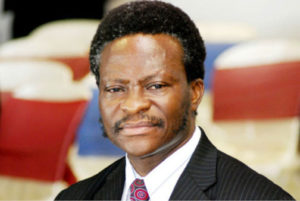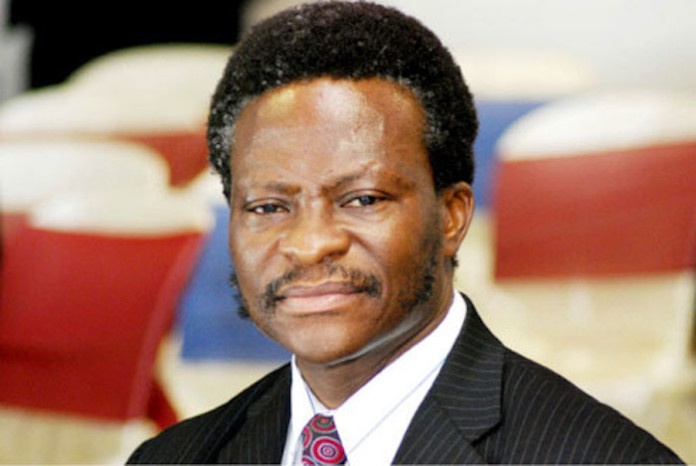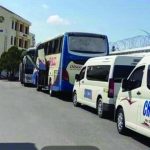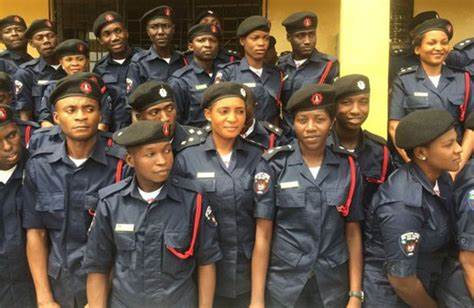
Stakeholders in the aviation industry have called for review of policies guiding the operations of security agencies at the airports, insisting on collaboration and intelligence sharing by security operatives at the nation’s airports, in order to overcome the growing security challenges in air travel.
Nigeria Immigration Service (NIS), Nigeria Customs Service (NCS), the National Drugs Law Enforcement Agency (NDLEA), the State Security Service (SSS) and the Aviation Security (AVSEC), have statutory roles in maintaining security at the airports, the stakeholders said.
The stakeholders brainstormed in a two-day conference organised by the Nigeria Civil Aviation Authority (NCAA) in Lagos, while canvassing for the collaboration of agencies in sharing information that will further fortify security at the airports.
The Director General, NCAA, Captain Chris Najomo, in his address, said the aviation industry was the lifeline of global connectivity by acting as a key enabler for commerce, cultural exchange and economic development.
Najomo stated that with these opportunities come increasingly-evolving threats of cyberattacks, terrorism, insider-threats, unmanned aerial systems and the intricate dilemmas of cargo, passenger and airport security.
He noted that the threat towards the industry was constantly changing, warning that any attack on civil aviation through any one of these means could be countered by the implementation of effective aviation security countermeasures.
He explained that to tackle safety threat in the sector, aviation security personnel must be competent, stressing that this could only be achieved through training, re-training and more training of the personnel.
He urged individuals and organisations in the sector to imbibe vigilance, be proactive in identifying and mitigating potential threats to civil aviation.
Najomo also canvassed for collaboration, information sharing among agencies and organisations and adoption of technology to counter terrorism and potential threat in the sector.
He said: “Information sharing and coordination among all stakeholders is essential in preventing and responding to security threats. No one can do it alone. Leveraging advanced technologies like biometrics, Artificial Intelligence, and cybersecurity measures to enhance security and efficiency.
“Adhering to international standards and national regulations to ensure consistency and effectiveness of implemented security measures is very key. These attacks against civil aviation can be countered by the implementation of effective aviation security measures and procedures, and of course, by competent personnel.”
In a presentation, the Managing Director of the Nigerian Airspace Management Agency (NAMA), Farouk Umar Ahmed, reiterated that many airport and airspace facilities in Nigeria are yet to benefit from modern security technologies, noting that obsolete screening systems, inadequate perimeter fencing, poor surveillance coverage and limited access control systems expose key installations to avoidable threats, adding that the integration of physical and cyber-security systems remains suboptimal, limiting the ability to detect, deter, and respond to security breaches in real time.
Ahmed who was represented by NAMA’s Director, Legal Services, Rita Egbadon, lamented that lack of synergy among security agencies, despite the shared responsibility for securing aviation infrastructure and coordination among security agencies remain weak.
He decried that the absence of structured inter-agency communication channels, overlapping mandates, and fragmented incident response mechanisms continue to compromise the effectiveness of security operations at airports, adding that the absence of synergy delays critical decision-making and hinders unified responses to security threats.
Ahmed emphasised that the critical role of aviation security personnel is undermined by insufficient training, poor remuneration, and limited opportunities for career development.
“Several frontline officers are not conversant with evolving international security standards, while low morale continues to affect performance, vigilance, and professionalism. A growing concern is the deployment of inadequately qualified individuals into sensitive aviation security positions. These appointments often bypass necessary screening, certification, and background verification processes required by ICAO Annex 17 and national civil aviation regulations. The result is a vulnerability in the leadership and execution of security protocols at airports and related facilities,” he explained.
He suggested that there is a need to put in place a joint aviation security task force and create a National Aviation Security Coordination Framework, anchored by the Federal Airports Authority of Nigeria (FAAN) and regularly inspected or audited by NCAA, to drive seamless collaboration among all security stakeholders.
“Funding mechanisms should be developed to ensure sustained upgrades and maintenance. Adopt a comprehensive capacity building and incentive programme security personnel should undergo recurrent training accredited by ICAO (International Civil Aviation Organisation) and relevant bodies. Training must cover not only physical security but also cyber security, behavioural detection, and emergency response Additionally, structured motivation frameworks- including health benefits, hazard allowances, and career progression plans-should be introduced to retain top talent,” Ahmed further explained.
Former Director General, Nigeria Civil Aviation Authority and President ICAO 37th General Assembly, Dr. Harold Demuren, in his presentation said the advantage terrorists have which those fighting them did not have is time to plan. According to him, terrorists have time to plan, they have the resources to carry out their plan and also, they are willing to die in the process.
He said terrorists exploit global vulnerabilities with deadly precision and urged aviation security operatives not to underestimate these advantages the terrorists have.
He outlined multiple categories of threats to civil aviation, adding, “these include illegal entry, document fraud, human trafficking, and persons suspected to be terrorists. Weapons such as arms, ammunition, and explosives also remain common dangers. Furthermore, he highlighted smuggling of illicit drugs, stolen items, and hazardous goods as additional concerns.”
According to him, traditional threats like homemade explosives and improvised explosive devices (IEDs) are still relevant. However, modern attacks now include person-borne and vehicle-borne IEDs. Some attacks occur even from a distance using remote methods, adding that small arms fire and chemical threats, including toxic agents, have further complicated aviation security.
Demuren also emphasised risks posed by the use of small aircraft in attacks. He said planes may even be used as weapons themselves. Attacks on terminals and perimeter breaches are rising. These point to the need for smarter, more coordinated countermeasures.
Particularly alarming, he said, is the risk of operating near conflict zones.
“Aircraft flying over such areas face heightened exposure to armed conflict and anti-aircraft weapons,” he explained. He urged airlines and governments to conduct thorough risk assessments before operating in such regions.

He further explained that the International Civil Aviation Organization (ICAO) now supports this approach. ICAO provides updated guidelines and threat-assessment tools to help states restrict or close dangerous airspace when necessary. These actions, he said, can prevent deliberate or accidental targeting of civilian aircraft.
Demuren also identified cybersecurity as another rapidly growing threat in air travel and noted that aviation now depends heavily on digital platforms.
“Cybersecurity must become a top priority. Hacking and system sabotage can create havoc and must be prevented through proactive action,” he said.
Demuren stressed that insider threats are among the most dangerous today, noting that these threats arise from within aviation operations and personnel and remarked that in Nigeria, unemployment, greed, poor salaries, and ideological motivations have worsened the situation.
“Unfortunately, those assigned to guard us sometimes become the weak link,” he added






